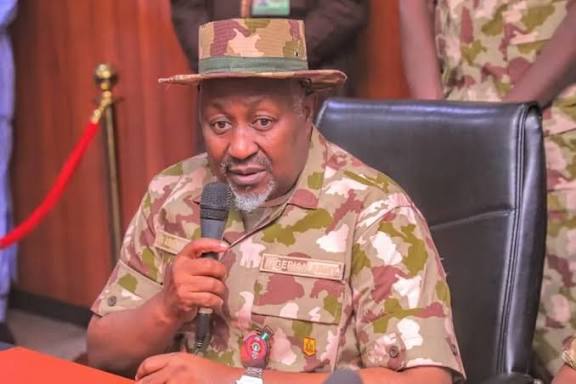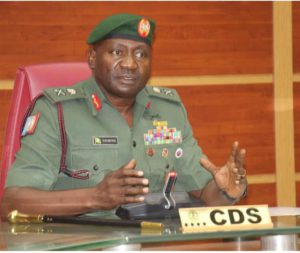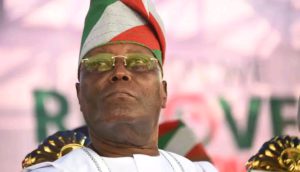Defence Minister Badaru Leads Renewed Fight Against Insecurity in Nigeria

By Ali Zakirai
Abuja, Nigeria – After years of unrelenting insecurity across Nigeria, a renewed sense of hope is emerging, credited in part to the strategic leadership of the Minister of Defence, Mohammed Badaru Abubakar. Just over a year into his appointment, the former Jigawa State Governor is being praised for driving significant progress in the country’s fight against terrorism, banditry, kidnapping, and oil theft.
Badaru, known for his disciplined and transparent governance during his tenure in Jigawa, has brought similar principles to the federal defence portfolio. Under his leadership, the Nigerian Armed Forces have intensified operations across multiple theatres, recording notable successes in neutralizing threats and reclaiming occupied territories.
Tangible Progress in Security Operations
According to official data, more than 9,000 terrorists, bandits, and kidnappers have been neutralized in the past year, with over 17,000 suspects arrested. In addition, over 24,000 insurgents have voluntarily surrendered, marking a major milestone in Nigeria’s ongoing deradicalization and reintegration efforts.
Military sources also confirmed the rescue of over 4,600 kidnapped victims, with broader operations helping nearly 10,000 hostages regain their freedom. The impact has been particularly felt in states like Zamfara, Katsina, Kaduna, and Niger, where reported cases of abductions have dropped significantly.
Strategic, Intelligence-Led Approach
Unlike previous approaches that heavily relied on force, Badaru has emphasized strategy, inter-agency cooperation, and intelligence-led operations. His leadership has fostered unprecedented synergy among the military and other security agencies, including the police, navy, air force, and civil defence corps.
This improved coordination has resulted in the dismantling of terror cells, interception of illegal arms shipments, and disruption of logistics networks that previously fueled criminal activities. Notably, highways such as the Abuja–Kaduna and Birnin Gwari–Kaduna routes—once notorious for attacks—have witnessed a significant decline in ambushes.
Boosting Troop Morale and Infrastructure
Badaru has also prioritized troop welfare, recognizing it as essential to operational success. His ministry has ensured the timely payment of allowances, upgraded living conditions, and improved medical care for personnel and their families. This has reportedly improved morale, reduced desertion, and enhanced operational performance.
The Defence Ministry under his leadership has also initiated the modernization of military infrastructure, including procurement of new hardware and adoption of advanced technologies to strengthen the Armed Forces’ capabilities.
Securing Economic Assets in the Niger Delta
Beyond internal security, the Minister has expanded focus to the protection of Nigeria’s critical economic infrastructure, particularly in the oil-rich Niger Delta. In collaboration with other agencies, Badaru has overseen operations that led to the destruction of illegal refineries, impoundment of vessels, and shutdown of storage facilities used for oil theft—contributing to improved national oil output.
A Reflection of the Tinubu Administration’s Security Agenda
Observers say Badaru’s achievements reflect the broader national security strategy of President Bola Ahmed Tinubu, which prioritizes coordination, professionalism, and long-term stability.
Under Badaru’s stewardship, previously volatile communities are beginning to stabilize. Markets have reopened, farmers are returning to their fields, and students are back in classrooms—especially in areas once crippled by insurgent activity.
Outlook: Rebuilding Trust, Restoring Peace
Security analysts note that while challenges remain, the Defence Ministry’s recent track record indicates a paradigm shift in Nigeria’s security architecture. With a focus on results over rhetoric, the Minister’s disciplined and strategic leadership is restoring both safety and public confidence.
As Nigeria continues to confront complex security threats, Mohammed Badaru Abubakar has emerged as a steady and pragmatic leader, guiding the nation’s defence efforts with coordination, foresight, and a commitment to measurable outcomes.






